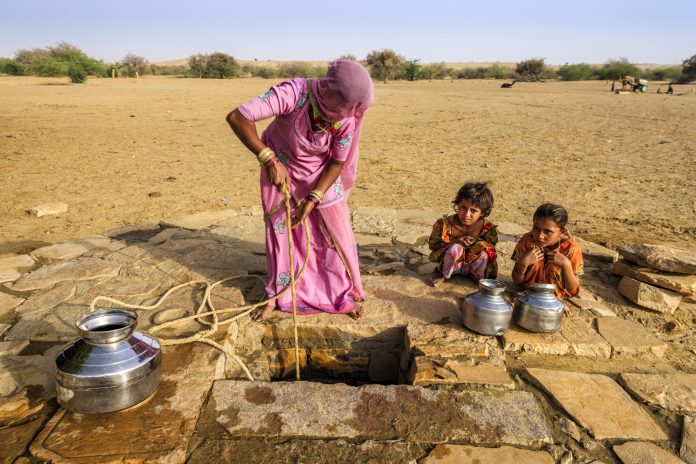On Tuesday, UN agencies issued an appeal for immediate action, emphasising the significant health threats confronting women, infants, and children as the climate crisis continues to escalate
To protect the health of mothers, children and newborns from the repercussions of climate change, the World Health Organisation (WHO), UN Population Fund (UNFPA), and UN Children’s Fund (UNICEF) collaboratively emphasised the neglect, inadequate reporting and underestimation of the impact of climate events on maternal and child health.
It further highlights the crucial need to incorporate maternal and child health considerations into national climate change response plans, addressing the existing gap in prioritising the needs of women, newborns, and children within the climate change discourse in numerous countries.
“Climate change poses an existential threat to all of us, but pregnant women, babies and children face some of the gravest consequences of all,” warned Bruce Aylward, Assistant Director General for Universal Health Coverage at WHO.
COP28 climate conference
Before the COP28 climate conference, the call to action highlights seven critical measures. These include ongoing efforts to decrease greenhouse gas emissions, actions related to climate finance and specific inclusion of the needs of pregnant women, babies, and children in policies.
At the COP28 conference, delegates will mark the first-ever Day of Health, recognising the link connection between the well-being of individuals and the planet.
Health risks related to climate change.
Climate change alters the patterns and geography of health conditions, including respiratory conditions. Increasing temperatures are causing shifts in the geography and intensity of vector-borne diseases.
The rise in global temperatures also amplifies the risk of deadly diseases spreading, posing a significant threat to children and pregnant women who have a weakened immune system.
Insufficient water (resulting from drought) and excessive water (caused by flooding) affect agriculture, food security, housing, and infrastructure, as well as the availability of clean water, sanitation, hygiene, and access to health services and information.
In the most severe cases, climate change can manifest as a humanitarian crisis, leading to widespread migration and accelerating population displacement.
Impact on children and pregnant women.
- Heat-Related Illnesses: Rising temperatures can lead to heatwaves, causing heat-related illnesses such as heat exhaustion and heatstroke. Pregnant women and children are particularly vulnerable to these conditions.
- Vector-Borne Diseases: Climate change affects the distribution and behaviour of disease-carrying vectors such as mosquitoes and ticks. This can increase the spread of diseases like malaria, dengue fever, and Lyme disease, posing significant risks to pregnant women and children.
- Respiratory Issues: Changes in climate patterns contribute to increased air pollution and the proliferation of allergens, leading to respiratory problems such as asthma. Children, especially those with developing respiratory systems, and pregnant women may face heightened health risks.
- Waterborne Diseases: Climate change can impact water quality and availability, increasing the risk of waterborne diseases. Pregnant women and children are particularly susceptible to diseases like diarrhoea and cholera resulting from contaminated water.
- Malnutrition: Climate change can affect food production and security, leading to malnutrition. Pregnant women and children are at a higher risk of inadequate nutrition, which can have long-term health implications.
Studies suggest that the damage can start in the womb, resulting in various complications for both mothers and children, with consequences that could last a lifetime.














